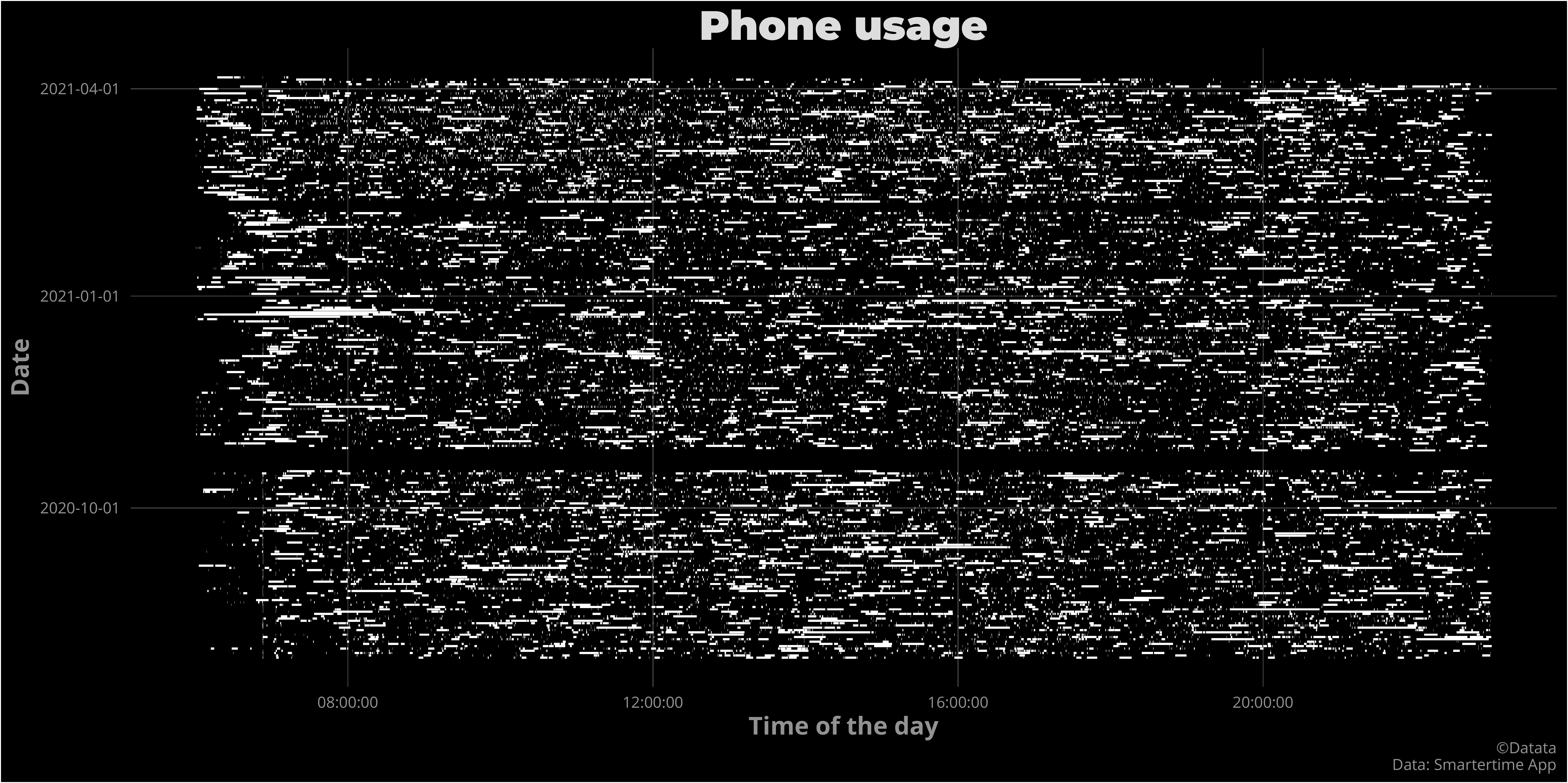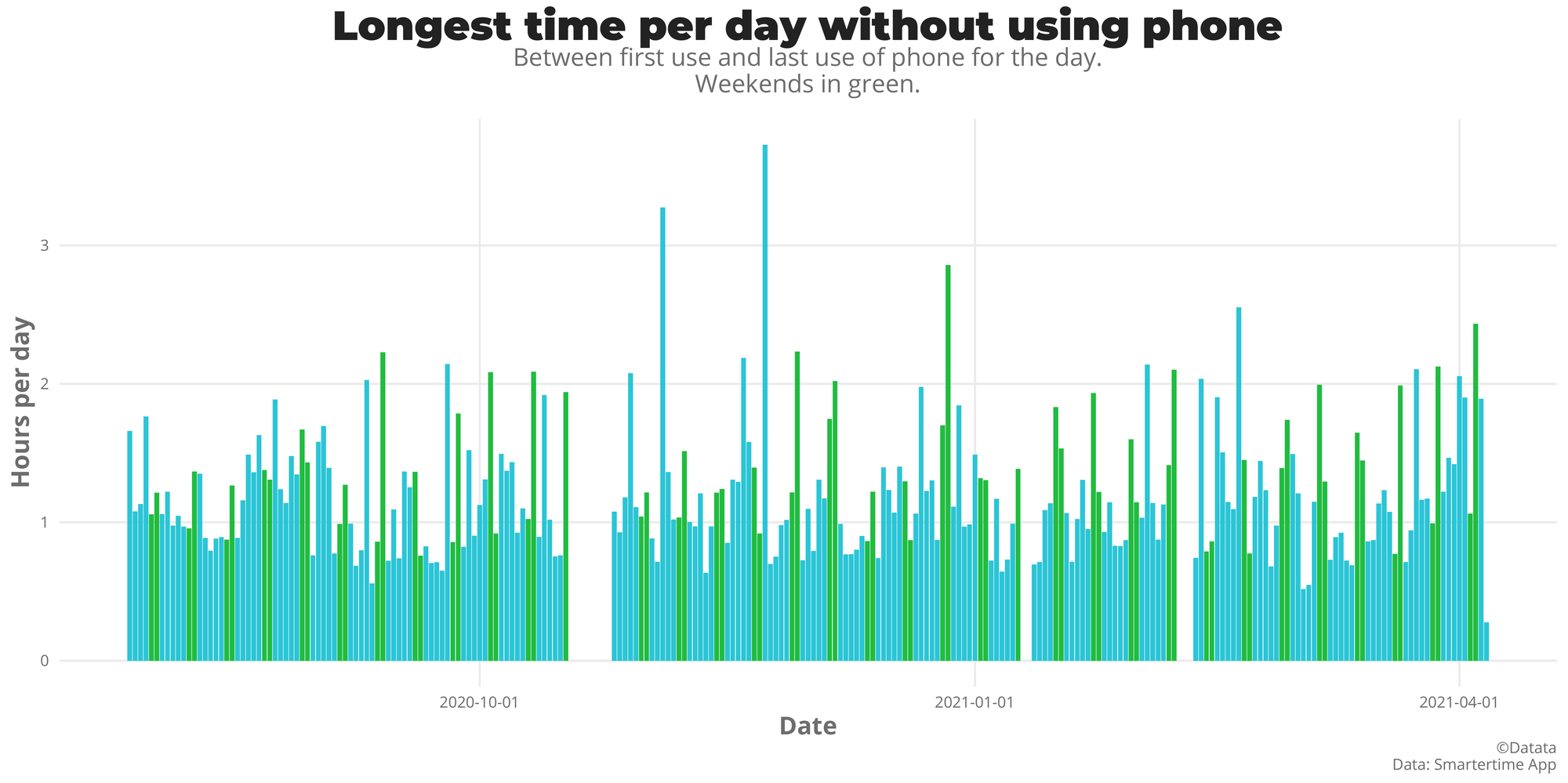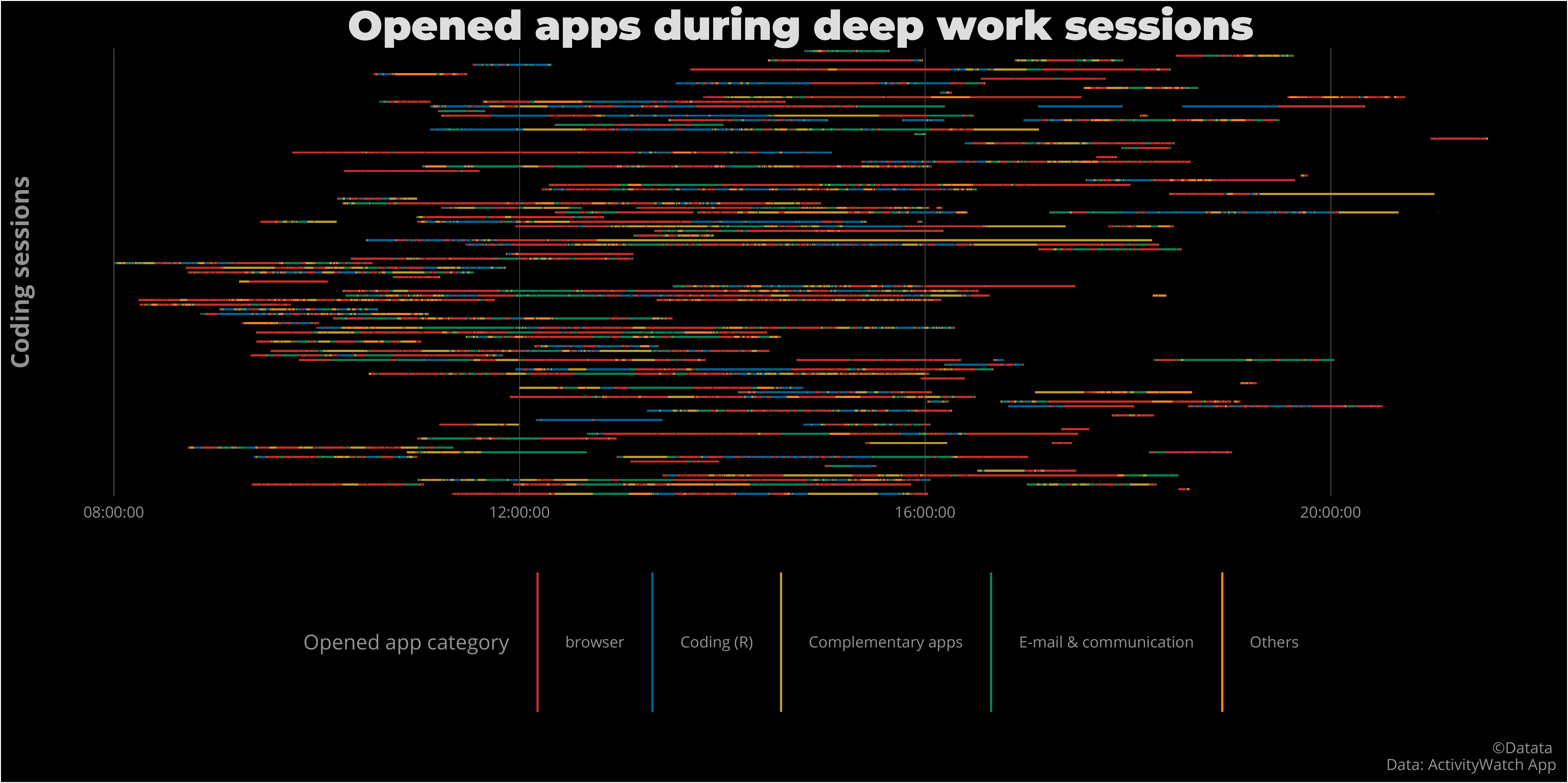Precious attention, interrupted [Datata #4]
Technology has a profound impact to our mental wellbeing, creativity and work. I want to show how serious of a problem this is. With data in hand, as always.
![Precious attention, interrupted [Datata #4]](https://images.unsplash.com/photo-1506377711776-dbdc2f3c20d9?crop=entropy&cs=tinysrgb&fit=max&fm=jpg&ixid=MnwxMTc3M3wwfDF8c2VhcmNofDE2fHxwaG9uZSUyMGFkZGljdGlvbnxlbnwwfHx8fDE2MTk1MDUxMzQ&ixlib=rb-1.2.1&q=80&w=1200)
Technology has helped us advance and make our lives easier, each industrial revolution has drastically changed our way of living. We are more connected than never. Imagine going through a pandemic such as COVID without being able to communicate with your loved ones via videocall.
But technology isn't always good, a big part of the population has become addicted to the phone and the computer. This has a profound impact on our mental wellbeing, creativity and work. My goal is to show how serious of a problem this is. With data in hand, as always.
We are addicts
Will I have a new notification? Regardless of if you have your phone on silent or vibration, we have the impulse to reach out for our phone to check if we have received any notification.
Variability of reward and uncertainty is the main thing to keep you hooked.
"Addiction is any behavior that gives you temporary relief, temporary pleasure, but in the long-term causes harm, has some negative consequences and you can't give it up, despite those negative consequences. And from that perspective, you can understand that there are many, many addictions." - Gabor Maté
Technology can be used for temporary relief, think of: Avoiding your emotions, not wanting to be in your own thoughts, evading reality etc.
This might be difficult to notice, since often we self-interrupt (by taking the phone or going to another page not related with the task at hand) automatically, out of a habit.
And you don't get clean by putting the heroin on a high shelf. Have you tried putting your phone in another room or a bit further in your table? It might work for a bit, but is very easy to fall into old ways.
When my phone broke and I had to wait for about 10 days to get a new one, I felt terrible. Something was missing in my life, and I could feel the disconnection from the world.
Constant interruption at your hands
I have been using two software to track all my actions in the laptops (Activity Watch) and phone (Smarter Time). This has given me the chance to analyze with data how I use technology in my day-to-day for months. It is rather scary to go through the data and discover the seriousness of the matter.
By taking the raw data from my phone I was able to visualize the usage of it. Every white stripe is where I was using my phone.

You can see some rather long chunks of usage, but majority is very small sessions. Is important to note that my phone is always on silent, so a lot of the usage is coming from self-interruptions. As said before this could be to avoid negative emotions (such as being stuck in a task at work) or to not be bored (at your hand there is virtually infinite content).
Our minds need a space to turn inward and to be imaginative and creative. With constant external stimulation, that space is compromised and we only scratch the surface of our potential as we will see later.
Taking your phone is a habit, created by the addiction. Think of the few moments during the day when you don't have your phone around, shower might be the only device-free, mind wandering activity nowadays.
"Why do we let ourselves fall prey to apps and services that are designed explicitly to hook and capture attention, and keep us “engaged” for as long as possible so we can fulfill some capitalistic destiny and continue perpetuating the systems of inequality, injustice, and lacking individualism?" - Mike Tannenbaum
We give away our attention for free to companies that have huge budgets to test how to exploit human nature to make it addictive so you spend more time in their platforms. All this to be able to show you more adds and make more money.
By going to my data, I wanted to understand how long is the biggest time chunk during a day where I don't use the phone (from the moment I pick it up the phone to the moment I leave it at night)

What does the graph show? There are a lot of days, where for not even one hour I am focused completely in a task (either watching TV, thinking, reading, working) without checking my phone. On weekends it tends to be longer, and that is partly explained since it is the time where we have some quality time with my girlfriend and our dog, and go for a longer walk. And it feels great, to have deep conversations, enjoy nature etc. In other words, to be on your own world, not a digital one.
We know what is on the other side of technology and how wonderful it is, yet we cannot help ourselves but to check the phone all the time.
Deep Work
"Deep work, ..., is what you're paid for. It's the hard-to-do, attention-demanding activity that delivers value" - Scott H Young
Multitasking is horribly inefficient, just choose one thing and give it your undivided attention. Deep work is needed for tasks that require concentration, such as making a big decision, writing, painting, coding etc.
Deep focus is scarce, you cannot be all the time "in flow". And as a scarce resource, it should be protected. If our weekly attention budget for deep focus is 6 hours, those 6 hours should provide as much value as possible.
Technology can help us, for example finding a solution to a coding problem, but again, it is easy to escape from the difficulties of the work and get yourself distracted online. In an attempt to understand this, I decided to visualize the apps I use between coding sessions (note that it is an approximation, since I don't have a way to ensure all are supposed to be deep work coding sessions, some are just opening the app, running some code and closing the session later in the day).

It can be seen, that sometimes the browser interruptions are short and I go back to coding (checking something in Stack overflow for example), but other times unfortunately I end up going to Twitter and staying there for a while. The feeling of being stuck on a task creates negative emotions such as: Can I do this? I am not good enough etc. And the easiest escape from those is often to distract yourself.
Other times email & work chat comes on the way to distract you and pull you away from the project in hand. That sense of urgency is deadly when you are working in deep focus projects. Having a meeting in between, receiving an "urgent email" or call from a colleague.
Just imagine, how much more could you create if you would give your full attention to the task at hand?
Conclusion
In short, a big part of the world is addicted to technology, myself included. We have such a powerful tool in our hands: we can learn anything, we can connect with people all around the world, be part of online communities where we are accepted, navigate to every corner of earth, carry thousands of CDs in our pocket, etc.
But on the other hand, many companies (especially social media) have made us distraction junkies. We seek distraction at the cost of not being present in our daily lives, and it compromises the quality of our lives and work. Distractions are not inherently bad, but too much of it can take a toll.
The autonomy paradox: technology saves us time, but it also takes it away. As with any addiction I guess that the first step is to admit it. Next step could be a Digital Detox as Yina Huang suggests, doing a digital fast on Sundays from 10AM to 7 PM.
The difficult part is to get rid of the excuses of why you can't be without your phone (What if somebody calls me with an urgent problem? What if I need to go somewhere and need directions?).
Assume it, we are slaves of technology.